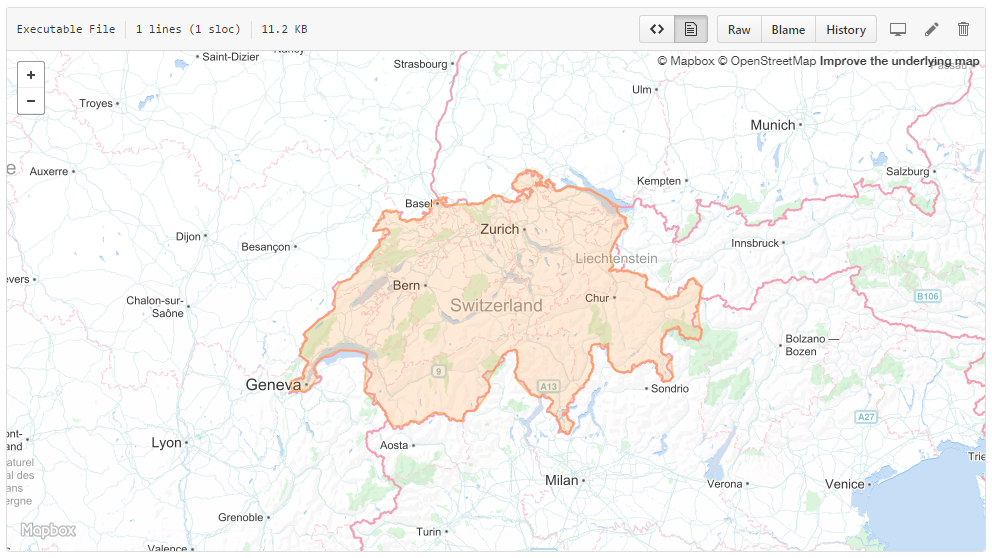Amongst many other information you'll be able to plot country maps:
This package is a collection of some other packages with information on:
-
Countries
- name (common and native)
- currency
- languages
- states
- timezone
- flags (sprites, flag icons, svg)
- tld
- multiple ISO codes
- calling code
- capital
- alternate spellings
- region & sub region
- translations (country name translated to some other languages)
- latitude and logitude
- borders (countries) - you can hydrate those borders (like relatioships)
- area
- topology
- geometry
-
Currencies
- sign
- ISO codes
- title
- subunits
- usage (dates)
-
States
- adm codes
- name & alt name
- type (state, city, province, canton, department, district, etc.)
- latitude & longitude
- language
- (and many more)
-
Flags. There are some options available out there, so this package will give you some:
- sprite, based on https://www.flag-sprites.com/
- flag-icon and flag-icon-squared, based on https://github.com/lipis/flag-icon-css
- world-flags-sprite, based on https://github.com/lafeber/world-flags-sprite
- svg, the flag svg file loaded into the json
The package is based on Laravel Collections, so you basically have access to all methods in Collections, like
$all = Countries::all();
This filter
Countries::where('name.common', 'Brazil')
Will find Brazil by its common name, which is a
#items: array:22 [▼
"name" => array:3 [▼
"common" => "Brazil"
"official" => "Federative Republic of Brazil"
"native" => array:1 [▼
"por" => array:2 [▼
"official" => "República Federativa do Brasil"
"common" => "Brasil"
]
]
]
And, you can go deepeer
Countries::where('name.native.por.common', 'Brasil')
Or search by the country top level domain
Countries::where('tld.0', '.ch')
To get
"name" => array:3 [▼
"common" => "Switzerland"
"official" => "Swiss Confederation"
"native" => array:4 [▶]
]
"tld" => array:1 [▼
0 => ".ch"
]
And use things like pluck
Countries::where('cca3', 'USA')->first()->states->pluck('name', 'postal')
To get
"MA" => "Massachusetts"
"MN" => "Minnesota"
"MT" => "Montana"
"ND" => "North Dakota"
"HI" => "Hawaii"
"ID" => "Idaho"
"WA" => "Washington"
"AZ" => "Arizona"
"CA" => "California"
"CO" => "Colorado"
"NV" => "Nevada"
"NM" => "New Mexico"
"OR" => "Oregon"
"UT" => "Utah"
"WY" => "Wyoming"
"AR" => "Arkansas"
"IA" => "Iowa"
"KS" => "Kansas"
"MO" => "Missouri"
"NE" => "Nebraska"
"OK" => "Oklahoma"
"SD" => "South Dakota"
"LA" => "Louisiana"
"TX" => "Texas"
"CT" => "Connecticut"
"NH" => "New Hampshire"
"RI" => "Rhode Island"
"VT" => "Vermont"
"AL" => "Alabama"
"FL" => "Florida"
"GA" => "Georgia"
"MS" => "Mississippi"
"SC" => "South Carolina"
"IL" => "Illinois"
"IN" => "Indiana"
"KY" => "Kentucky"
"NC" => "North Carolina"
"OH" => "Ohio"
"TN" => "Tennessee"
"VA" => "Virginia"
"WI" => "Wisconsin"
"WV" => "West Virginia"
"DE" => "Delaware"
"DC" => "District of Columbia"
"MD" => "Maryland"
"NJ" => "New Jersey"
"NY" => "New York"
"PA" => "Pennsylvania"
"ME" => "Maine"
"MI" => "Michigan"
"AK" => "Alaska"
The package uses a modified Collection which allows you to access properties and methods as objects:
Countries::where('cca3', 'FRA')
->first()
->borders
->first()
->name
->official
Should give
Principality of Andorra
Borders hydration is disabled by default, but you can have your borders hydrated easily by calling the hydrate method:
Countries::where('name.common', 'United Kingdom')
->hydrate('borders')
->first()
->borders
->reverse()
->first()
->name
->common
Should return
Ireland
Since this data is not supposed to change, calls are automatically cached, but you can changed that.
- sample-partial.json: example of a country with no borders hydrated.
- sample-full.json: example of a fully hydrated country.
- PHP 7.0+
- Laravel 5.3+
Use Composer to install it:
composer require pragmarx/countries
Add the Service Provider and Facade alias to your app/config/app.php (Laravel 4.x) or config/app.php (Laravel 5.x):
PragmaRX\Countries\ServiceProvider::class,
Countries is licensed under the BSD 3-Clause License - see the LICENSE file for details
Pull requests and issues are more than welcome.




